Stepping
into
an
MMA
gym
for
the
first
time
feels
like
stepping
into
another
world.
Fighters
move
with
precision,
trainers
bark
out
drills,
and
newcomers
try
to
keep
up.
Every
muscle
works
harder
than
ever
before,
and
doubts
creep
in
fast.
But
something
about
the
struggle
pulls
you
in.
Everything
feels
impossible
at
first.
Footwork
stumbles,
strikes
miss
the
target,
and
breathing
feels
out
of
sync.
But
with
each
session,
something
clicks.
The
body
adjusts,
instincts
sharpen,
and
the
gym
starts
feeling
less
like
an
obstacle
and
more
like
a
place
you
belong.
The
First
Training
Session:
Reality
Hits
Hard
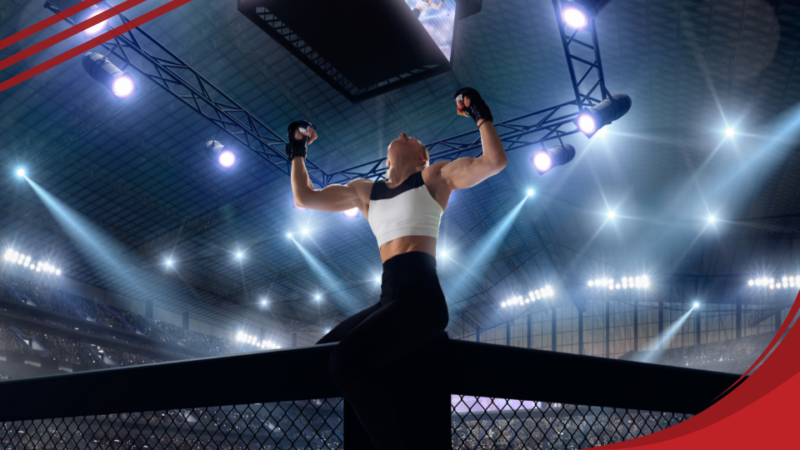
It
smells
like
sweat
and
old
leather,
a
scent
that
clings
to
everything,
and
the
air
feels
thick
with
heat
from
bodies
moving
non-stop.
The
gym
is
louder
than
expected,
filled
with
the
sharp
sound
of
gloves
hitting
pads,
the
steady
rhythm
of
jump
ropes
slapping
the
floor,
and
the
occasional
thud
of
someone
hitting
the
mat
harder
than
they
meant
to.
Everyone
looks
like
they
know
exactly
what
they’re
doing,
and
for
a
second,
the
idea
of
turning
around
and
walking
right
back
out
the
door
feels
like
the
smartest
choice.
The
warm-up
is
worse
than
imagined.
Push-ups
feel
impossible
by
the
second
round,
legs
shake
before
the
real
training
even
begins,
and
whatever
energy
exists
at
the
start
burns
out
fast.
Breathing
turns
shallow,
sweat
drips
into
the
eyes,
and
hands
struggle
to
stay
in
the
right
position.
Drills
that
looked
simple
when
someone
else
was
doing
them
suddenly
feel
like
an
impossible
puzzle,
and
every
mistake
stands
out
like
a
flashing
sign
that
screams
newbie.
Then,
the
gloves
go
on,
and
reality
really
hits.
Literally.
Blocking
too
slow
means
taking
a
shot
to
the
ribs
that
knocks
the
wind
out
completely,
throwing
a
punch
without
balance
nearly
sends
everything
toppling
forward,
and
every
instinct
says
to
back
up
instead
of
push
in.
The
trainer
shouts
corrections,
frustration
builds,
and
muscles
refuse
to
listen
to
what
the
mind
is
trying
to
make
them
do.
Nothing
feels
natural,
nothing
feels
right,
but
somewhere
in
the
middle
of
all
the
chaos,
a
single
moment
happens—a
punch
lands
cleaner
than
expected,
footwork
doesn’t
feel
as
awkward
for
a
second,
or
maybe
just
surviving
the
session
feels
like
a
victory.
It
isn’t
much,
but
it’s
enough
to
come
back.
Bruises,
Soreness,
and
That
First
Big
Injury
Waking
up
the
next
morning
feels
like
getting
hit
by
a
truck.
Lifting
an
arm
takes
effort,
legs
feel
stiff,
and
muscles
scream
from
places
that
never
hurt
before.
The
soreness
is
brutal,
but
somehow,
it
feels
earned.
Every
bruise
tells
a
story,
proof
that
real
work
happened.
The
first
big
hit
is
a
different
kind
of
lesson.
Maybe
a
punch
lands
harder
than
expected,
or
a
kick
catches
the
ribs
in
just
the
wrong
spot.
The
shock
comes
first,
then
the
pain,
then
the
choice—to
keep
going
or
to
step
back.
The
gym
doesn’t
stop.
Nobody
apologizes.
That
hit
is
a
reminder
that
MMA
is
not
a
game.
It
demands
everything
and
gives
nothing
for
free.
How
to
Handle
the
Pain
Without
Quitting
-
Cold
Showers
and
Ice
Packs
–
Swelling
gets
worse
before
it
gets
better.
Ice
helps.
So
does
not
crying
about
it. -
Stretching
Even
When
It
Hurts
–
Skipping
a
warm-up
or
cooldown
makes
the
pain
ten
times
worse.
Move
through
it. -
Eating
Like
an
Athlete,
Not
a
Toddler
–
Protein,
carbs,
and
water
matter.
Junk
food
won’t
repair
damage. -
Resting
Without
Getting
Lazy
–
Taking
a
day
off
is
fine,
but
skipping
a
week
means
starting
over.
Breaking
a
Tooth:
When
Things
Go
Wrong
A
glove
slips
through
the
guard,
a
knee
comes
up
too
fast,
or
maybe
a
mouthpiece
isn’t
in
when
it
should
be.
It
happens
faster
than
the
mind
can
process—a
sharp
crack,
a
flash
of
pain,
and
then
the
slow
realization
that
something
is
missing.
Blood
drips
onto
the
mat,
and
a
tooth
is
either
loose,
chipped,
or
completely
gone.
The
first
instinct
is
panic,
but
nobody
else
seems
fazed.
Fighters
know
injuries
are
part
of
the
deal.
The
real
question
is
what
happens
next.
Some
shake
it
off
and
keep
going.
Others
take
a
break,
deal
with
the
damage,
and
come
back
stronger.
If
the
damage
is
bad
enough,
a
trip
to
Perth’s
best
implant
dentistry
becomes
part
of
the
recovery
plan.
Either
way,
it
is
a
test.
How
to
Avoid
Taking
Damage
Like
an
Amateur
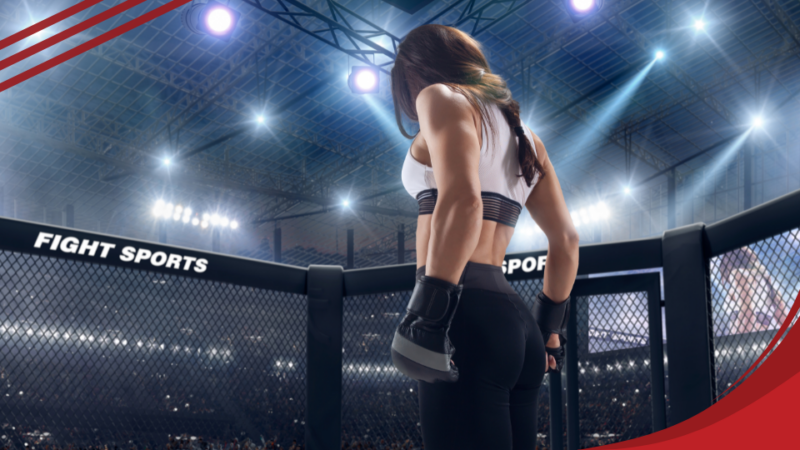
see
it
as
a
reason
to
quit.
Others
see
it
as
proof
they
belong.
-
Always
Keep
the
Mouthguard
In
–
A
second
of
laziness
can
cost
a
lifetime
of
dental
work. -
Hands
Up,
Chin
Down
–
Leaving
an
opening
is
asking
for
trouble. -
Move
the
Head,
Not
Just
the
Feet
–
A
stationary
target
gets
hit
every
time. -
Accept
That
Mistakes
Will
Hurt
–
The
body
toughens
over
time.
The
mind
does
too.
Pushing
Through
the
Pain
and
Doubt
The
first
week
feels
impossible.
Everything
hurts,
progress
feels
nonexistent,
and
every
single
mistake
stands
out.
Some
start
questioning
why
they
even
showed
up.
Doubt
whispers
that
this
sport
is
for
someone
else,
someone
stronger,
someone
faster.
That
voice
is
a
liar.
Pain
is
temporary.
The
body
adapts.
The
mind
toughens.
Fighters
who
look
effortless
today
were
struggling
beginners
once
too.
Every
class
makes
quitting
easier
or
makes
progress
happen.
The
ones
who
keep
pushing
through
are
the
ones
who
change.
Stop
Expecting
Instant
Progress
–
Nothing
worth
having
comes
easy.
Small
Wins
That
Keep
You
Coming
Back
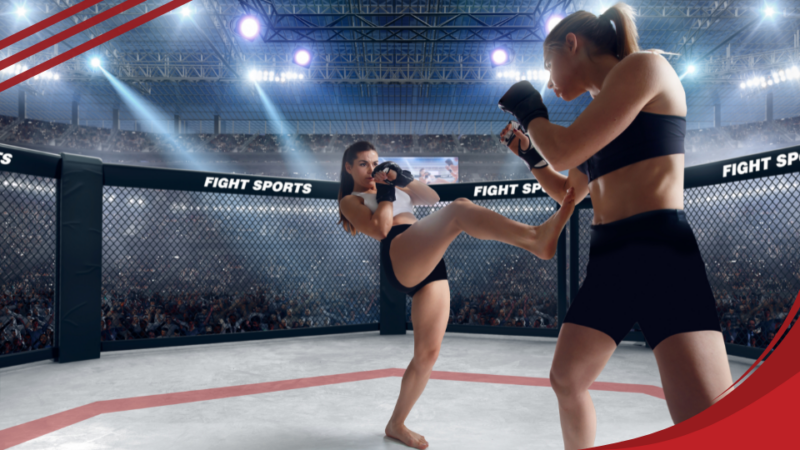
The
first
solid
punch
lands
clean,
and
for
a
second,
nothing
else
matters.
Balance
feels
right
for
the
first
time.
A
combination
flows
naturally
instead
of
feeling
forced.
Survival
in
a
sparring
round
lasts
longer
than
before.
Small
victories
start
stacking
up.
Progress
doesn’t
come
all
at
once.
It
shows
up
in
moments.
The
weight
of
doubt
starts
lifting.
The
bruises
hurt
less.
Techniques
feel
more
natural.
Confidence
grows,
not
because
everything
is
perfect,
but
because
things
are
finally
starting
to
make
sense.
What
Makes
MMA
Addictive
-
The
First
Time
a
Technique
Works
–
When
training
finally
clicks,
it’s
impossible
to
ignore. -
The
Community
Around
You
–
Everyone
there
knows
the
struggle.
Fighters
push
each
other
forward. -
The
Feeling
of
Getting
Stronger
–
Pain
turns
into
power.
Doubt
turns
into
discipline.
Learning
to
Take
Hits
and
Give
Them
Back
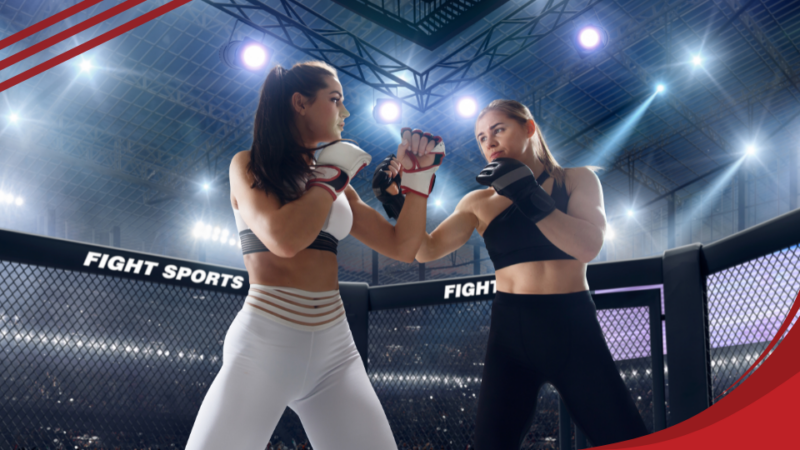
The
first
time
a
hit
lands
cleanly,
everything
changes.
Instinct
says
to
flinch,
turn
away,
or
step
back,
but
that
only
makes
the
next
hit
worse.
Taking
a
shot
and
staying
in
the
fight
is
part
of
the
process.
It’s
not
about
being
reckless.
It’s
about
not
freezing,
not
panicking,
and
not
letting
fear
take
over.
Throwing
strikes
feels
just
as
awkward
at
first.
Power
doesn’t
come
from
swinging
wild—it
comes
from
technique,
balance,
and
precision.
Footwork
needs
to
be
right.
The
body
needs
to
turn
with
the
punch.
The
moment
it
all
clicks,
when
a
strike
lands
the
way
it
should,
confidence
builds.
Learning
to
take
a
hit
without
crumbling
and
learning
to
give
one
back
without
hesitation
separates
those
who
keep
training
from
those
who
walk
away.
-
Accept
That
Getting
Hit
Is
Part
of
It
–
Fear
makes
mistakes
happen.
Stay
calm,
keep
moving. -
Don’t
Swing
Wild
Like
a
Street
Fight
–
Controlled
strikes
land.
Random
punches
waste
energy. -
Breathe
and
Stay
Relaxed
–
Tension
slows
everything
down.
The
best
fighters
look
effortless.
After
a
Month,
The
Hardest
Part
Is
Already
Over
The
hardest
part
was
never
taking
a
punch,
struggling
through
training,
or
pushing
through
exhaustion.
The
hardest
part
was
showing
up
the
first
time
and
not
walking
out
when
doubt
screamed
to
leave.
That
moment
is
gone
now.
What
felt
like
an
impossible
challenge
is
now
just
another
part
of
the
day.
MMA
doesn’t
get
easier.
Training
never
stops
pushing
limits.
But
something
has
changed—the
fear
is
gone.
Strength
replaces
hesitation.
The
body
no
longer
fights
against
every
movement.
The
mind
no
longer
shuts
down
under
pressure.
Most
Popular
Women
in
MMA
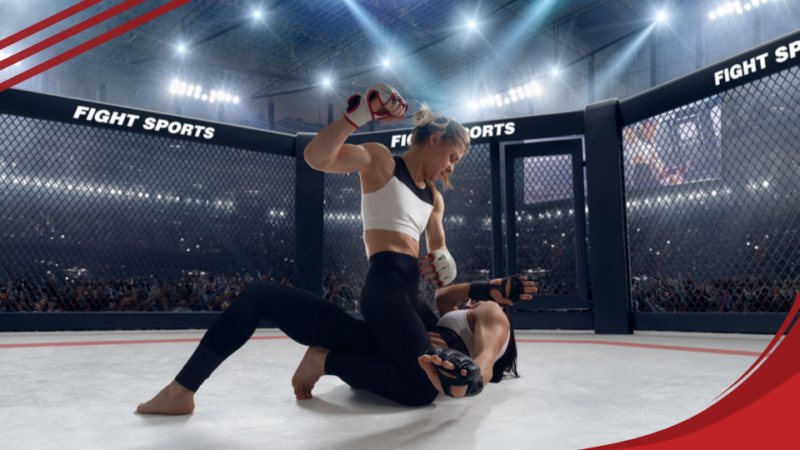
fighters
changed
the
sport
forever.
They
built
legacies
through
skill,
toughness,
and
dominance,
proving
that
women
belong
in
MMA.
Their
careers
inspired
countless
others
to
step
into
the
gym
and
push
their
limits.
-
Ronda
Rousey
–
The
Game
Changer:
The
first
female
UFC
champion.
Her
armbar
submissions
became
legendary,
and
she
forced
the
world
to
take
women’s
MMA
seriously. -
Valentina
Shevchenko
–
The
Precision
Fighter:
One
of
the
most
technical
strikers
in
MMA
history.
Her
discipline
and
sharp
skills
made
her
a
dominant
champion. -
Amanda
Nunes
–
The
Double
Champ:
The
first
woman
to
hold
two
UFC
belts
at
the
same
time.
Her
power
and
confidence
made
her
one
of
the
greatest
fighters
ever. -
Rose
Namajunas
–
The
Quiet
Warrior:
She
proved
that
strength
isn’t
about
being
the
loudest.
Her
sharp
striking
and
mental
toughness
turned
her
into
a
champion. -
Zhang
Weili
–
The
New
Era:
The
first
Chinese
UFC
champion.
Her
speed,
power,
and
relentless
style
proved
that
the
future
of
women’s
MMA
is
stronger
than
ever.
Last
Words
MMA
tests
limits,
breaks
comfort
zones,
and
forces
growth.
The
first
30
days
feel
overwhelming,
but
pushing
through
transforms
doubt
into
confidence.
Strength
does
not
come
from
avoiding
struggle.
It
comes
from
facing
it,
taking
the
hits,
and
coming
back
stronger.
Every
class,
every
strike,
and
every
bruise
builds
something
real—discipline,
resilience,
and
the
mindset
of
a
fighter.
The
journey
never
gets
easier,
but
the
person
stepping
onto
the
mat
keeps
getting
stronger.